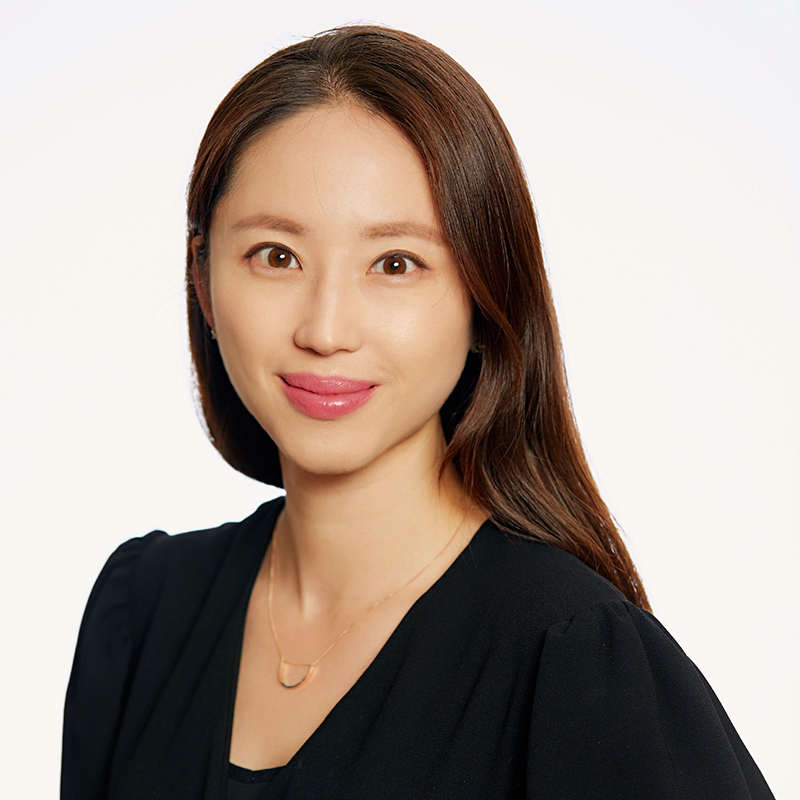
Yumi Oh
Business Management Lead - Citadel Global Quantitative Strategies
What is your background and how did you become interested in quant finance?
In my youth I enjoyed competing in Math Olympiads and proving math theories. I went to a science high school in Korea and then studied Operational Research in college at KAIST (Korea Advanced Institute of Technology). Aside from my interest in math, I had a passion for following markets and trying to understand how securities move in relation to each other. Quantitative finance is the perfect marriage of my two interests, so it was a no-brainer for me to pursue a career that analyses the markets quantitatively and predicts them using math.
What positive changes have you seen throughout your career in support of women’s equality?
Pursuing women's equality is a big part of my career motivation and I am glad to witness the changes happening across all the industries.
There are certainly an increasing number of female executives who are leading the industry forward in finance and tech, for example, both biggest exchanges in the U.S. have woman CEOs.
Gender diversity, in particular at the leadership level, has even been linked to boosts in profitability.
We are encouraged by the fact that the percentage of female executives is expected to grow to a bigger number each year.
Today, more women enjoy longer, more satisfying, and more senior-level careers in finance and the industry is stronger, in part, for their collective presence and contributions.
What unique challenges do women encounter in their finance careers and how can they overcome them?
The challenges women face in finance are not specific to finance, but rather similar to any industry that is male dominated. Some of these challenges include gender pay gaps, upward mobility, and work/life balance and mutual respect.
Work life balance is very important to me. I believe this is the biggest hurdle of any working mother's career path. My only thoughts on getting through this is to keep positive thoughts and look for the best way to utilize your time. Do not hesitate to get help and continuously communicate with your manager.
Overcoming these challenges are not easy and do not happen overnight. In my humble opinion, you just need to bring your best performance, let people know your achievements and speak up for fair treatment.
Which career achievements are you are most proud of?
I am very proud to be in a leading role and build the U.S. Business here at XTX and how much progress has been made. Particularly I am most proud of building portfolio risk management metrics and a factor risk platform. It is very exciting to be part of a journey when you get to be involved from the inception of a business and can have a much bigger influence. Hopefully, my best achievement is yet to come and looking forward to what the future brings.
What advantages/benefits do companies achieve when employing women quants?
Quant finance is an industry that needs diverse talents to keep on innovating and in order to build this pipeline, the whole sector must be involved. I believe progress and innovation comes from the interaction of many different points of view.
By employing more women quants, more gender diverse workplaces can improve both the work culture and the performance of the company.
What is your advice to other women considering a career in quant finance?
Learn from your role model and seek a mentor. I cannot stress enough the importance of continuous learning as the nature of work continues to evolve fast and competition increases.
Keep practicing self-development, build relationships and support other female quants so they can also be in a position to advocate for other women. Be more proactive and do not wait until the task is given to you. Take initiative on your own and do not hesitate to speak up for change.
How did the MSCF program prepare you for your career?
MSCF program's balanced approach between Finance, Mathematics, Statistics and Computer Science helped me establish a solid foundation in areas where I lacked expertise, such as Finance and Computer Science. It is critical for a market practitioner to a have a balanced knowledge in all 4 areas: From identifying market patterns to applying technical skills to those problems you want to solve with real market data. MSCF program also provided me with a great career service including mock interviews and alumni network that led me to many more opportunities.
What is your favourite memory from your time in the MSCF program?
One of my favourite memories from MSCF program was listening to Professor Steven Shreve's Stochastic Calculus class and getting his autograph in my textbook written by him. I was a big fan before, and he was the biggest reason why I decided to join MSCF program as well!
I also do think about those late-night team projects with my fellow MSCF classmates and road trips together for interviews in New York or Boston. Fun memories.